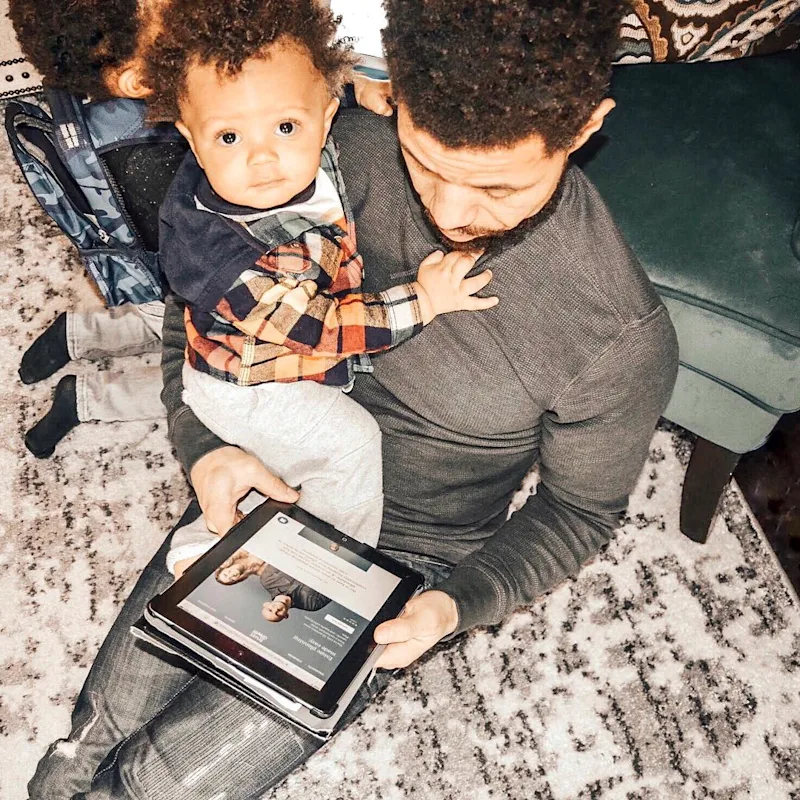
What to do When Someone Dies - A Step by Step Guide
Unsure of what to do when someone dies? We’ve created a step by step checklist to help you navigate this difficult process.

By Staff Writer
Trust & Will
Losing a loved one is one of the most difficult parts of life. No matter how prepared we try to be, saying goodbye is never easy. The days and weeks that follow the death of a loved one can be nothing short of torturous and everyone grieves in different ways.
While nothing will truly assuage the grief or ease the pain, having a detailed checklist of what to do when someone dies can help, even if it’s just a little bit. Trust & Will’s step by step guide was designed to help you navigate the challenging time after the loss of a close friend or family member.
What to do When Someone Dies Checklist
If you’re in charge of handling the affairs for a recently deceased loved one, there are a few things you should be prepared to do. Depending on the circumstances, there may be minor differences in each of the steps below, but the basic process is relatively the same.
Following the steps below will ensure you know what to do when someone dies at home, at night, if they were abroad, if it was sudden or unexpected, or even if the death was the result of a long illness.
If you need extra help managing the death of a loved one, consider using a helpful service like Lantern. They have more in-depth guides, checklists, and resources to ease your stress and help you along every step of the way.
1. Obtain Legal Documentation of Death
Legal documentation of death will be important for several things, like accessing bank and other financial accounts, starting the probate process (if necessary), filing a claim on life insurance and tending to other personal affairs. You’ll want several copies of the death certificate, which you can get from a funeral home or a medical examiner. Obtaining the death certificate should happen relatively soon after the passing, usually within a matter of days. How long you actually have depends on state law.
2. Notify Necessary Parties
Of course you’ll want to notify the appropriate people of the passing. It can be difficult, but try to let the most important people know first. In the age of social media, news spreads quickly, and you don’t want close family members or friends to learn of a passing from Facebook. Try to inform the following people, in this order, if possible:
All family members
Friends
Coworkers
Employer
Frequent acquaintances
Professional relationships
Old friends whom they may not communicate with anymore
After you get in touch with immediate family, friends and acquaintances, the more formal calls will need to be made. This includes telling anyone who would need to know about the death for either financial or business purposes. Taking care of informing businesses and government agencies could be a job for the Executor of the Estate, if one was named. Be sure the following agencies or companies are notified:
Social Security office - Reporting someone’s death to the Social Security Administration is very straightforward. You can speak to a representative by calling 1-800-772-1213 (TTY 1-800-325-0778).
Banks/Mortgage companies - Though this one may require some digging to find out who you should contact, it’s important to let mortgage companies and banks know of the death. If you’re not sure which bank to contact or who holds the mortgage, looking in a safety deposit box, a safe, a home office, a file cabinet or a desk is a good place to start.
Financial advisors/brokers - Just like finding the contact information for a bank or mortgage company, financial planners, personal bankers and brokers may be a bit hard to track down. You might be able to determine them simply by going through files, mail and wallets. You should contact any financial institutions you find as soon as possible.
Insurance companies - You want to reach out to any companies that insured the decedent. There may be death benefits due to the estate.
3. Make Arrangements for the Body
Any final arrangements that need to be made will greatly depend on the loved one’s last wishes. In the best circumstances, you’ll know and can honor their vision easily because you’ll have a clear understanding of what he or she wanted.
If the death was sudden, or if there were never any conversations about what should happen, it can become quite a bit more complicated. Know that there are several options for services, funerals, wakes and burials. You can start thinking about these basics now (Memorial service or not? Wake? Open casket viewing? Graveside burial? Cremation? etc…), but the first step is considering and arranging some or all of the following:
Transporting the body - a funeral home can help you with this.
Ordering a casket - can be done through a funeral home or online.
Finding a funeral director - if the deceased was religious, a pastor, priest or other clergy member can help with this; if he or she was not of an organized faith, you can reach out to an agnostic or non-denominational minister, or ask a friend or family member to conduct the service.
Finally, it’s important to know (and honor) if your loved one wanted to donate his or her organs for transplant, science or research (although that would be something a doctor needs to know immediately following the death)
4. Make Arrangements for Children and Pets
If your loved one had any dependents (minor children or adults who cannot take care of themselves) or pets, you need to find their Estate Plans quickly to see what, if any, provisions were set up for Guardianship.
If a Will or Trust hasn’t been located and there are minors or pets to be considered, arrangements need to be made immediately. If no estate planning documents are ever located, and/or if guardianship hasn’t been established, the courts may need to get involved to make a more final, long-term decision.
5. Secure Assets and Carry Out Other Important Tasks
You want to secure basic assets and personal property by ensuring home(s) and car(s) are locked. Other simple but important to-dos can include mundane household tasks and chores such as:
Taking the trash out
Checking the mail (and eventually forwarding it)
Bringing in any newspapers or other deliveries, etc.
Looking into Veteran’s benefits
As you move through the process, you may want to start thinking about things like holding an estate sale and cleaning the house to prepare it for a sale if necessary, etc.
6. Carry Out Decedent's Wishes
If you haven’t already located it, now is the time to find the Will and any other estate planning documents. These might be able to help you as you begin planning a memorial or funeral (which we’ll cover in the next step). Often, Wills specify the type of ceremony that’s desired, including who should be invited and other important end of life decisions.
Another relatively new (but increasingly important) part of estate planning is what's come to be known as a “Digital Estate.” A Digital Estate lays out all the digital assets and dictates how they should be handled (think: online passwords and accounts). If a Digital Estate is found, you’ll want to be sure to address everything in it.
7. Make Funeral Plans
Though planning a funeral will probably be exhausting, it must be done. Follow the steps below to make sure you do everything you need in order to fully honor your loved one. And the most important part of this step is to know that it’s OK to ask for help.
Write the obituary/death announcement - Writing an obituary or death announcement can be painful, but it’s often cathartic, too. There are many resources out there to help you write an obituary and death announcement, but remember that you knew your loved one best, and there really aren’t any rules about what you can or can’t do. Meaningful, heartfelt expressions are always the best route.
Coordinate other funeral arrangements - Will you be planning a large service or funeral? You'll need to decide if there will be a burial, how people will get from the service to the graveside, etc.
Send out invites - Make sure people know the details for the service. This can be accomplished through email, phone calls or in the obituary or death announcement in the newspaper.
Determine memorial type - Formal or unconventional, huge gathering or intimate setting, the memorial type should mostly depend on the deceased’s wishes, if possible.
Coordinate tasks like flowers, food/drinks, etc.- You want to decide things like if you’ll have food and refreshments, where you’ll have the gathering and how large the service will be, among other things.
8. Settle the Estate
Settling an estate, or estate settlement, is often a long process. But focusing on one thing at a time can help you get through it. While there are several other steps to getting an estate settled, the main ones are:
As Executor, reach out to beneficiaries, Trustees, etc. - Keep all interested parties informed and up to date with what’s going on, especially if there are any delays. Keep detailed and accurate financial records as you move through the steps to settle the estate.
Determine the need for probate - If there is no Estate Plan at all, or if there is just a Will (but no Trust), the estate will go through probate. Probate is simply the process of a court validating a Will and then distributing assets. If there is a Trust, probate can be skipped entirely.
Pay bills/close accounts - You will likely need to set up a bank account in the estate’s name to handle any financial dealings throughout these final stages. Be sure to have an accurate inventory of all assets, accounts and anything else you’ll need to take care of to close the estate.
Distribute assets - The main purpose of Estate Planning is to distribute assets, so once you’re at this stage, and all the debts and any taxes the estate owes have been settled, you’ll finally be able to make sure all remaining assets go to the appropriate beneficiaries as dictated by the Will or Trust.
What if Someone Dies without a Will?
When someone passes away without a Will or any other Estate Plan (like a Trust), it’s said that they died intestate. When this happens, state intestacy laws and the courts will decide the fate of all the assets in an estate. For a more detailed and in-depth breakdown, you can read our article on dying without a Will.
Grief is a tricky, complicated and often painful process to navigate. That’s why our number one mission at Trust & Will is to simplify the Estate Planning process for you. We’re here for all your Estate Planning needs, whether that means creating or updating your Estate Plan, knowing what is the first thing to do when someone dies, or anything else.
It’s better to be safe than sorry when it comes to protecting yourself and your loved ones, so get started with Trust & Will today to learn how an Estate Plan can benefit you.
This message contains marketing content and affiliate links to products or services. Trust & Will may receive commissions for purchases made through these links.
Related Topics:
Last updated: October 21, 2025



